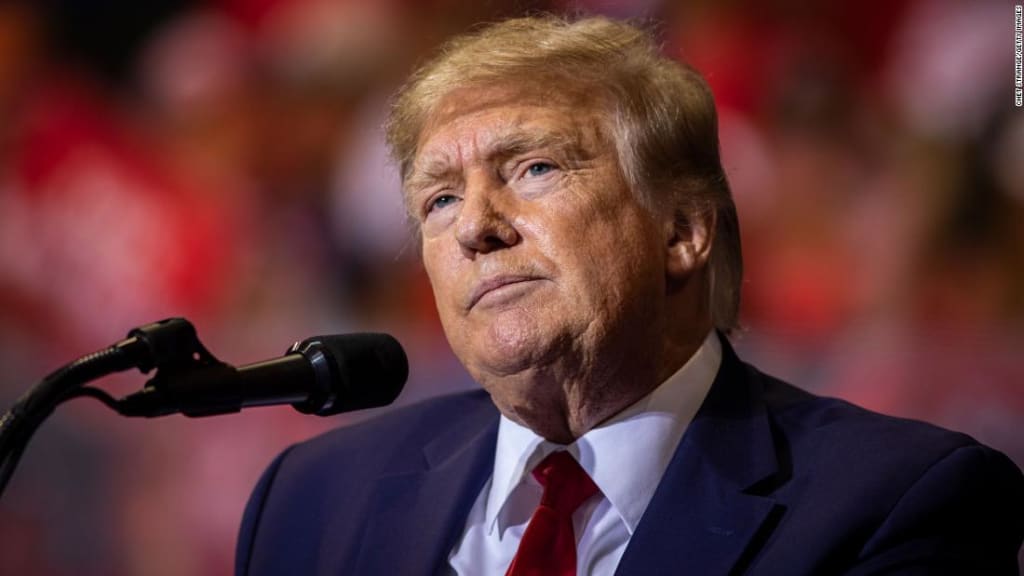Recent Search at Trump's Florida Residence Was Not the First One
Classified nuclear documents were found at Trump's Mar-a-Lago residence.

Former President Donald Trump's Mar-a-Lago residence in Palm Beach, Florida was searched by the FBI on Monday, August 8, 2022. The search was unannounced, and Trump was at Trump Tower in New York at the time.
What the public might not know is that it was not the first search or even the second search. During this particular search, the FBI found classified nuclear documents related to nuclear weapons and other items, according to The Washington Post.
Trump's Move Out of the White House
Donald Trump did not pack and leave the White House in a timely manner because he thought he would remain in power. He did leave on January 20, 2021.
It was only after Jan. 6, two weeks before Joe Biden’s swearing-in, that Trump began to make serious preparations to vacate the White House. Sources say the process was a mess and a chaotic exit.
West Wing aides and government movers tossed documents and other items into banker boxes that were shipped to a storage room at Trump's Mar-a-Lago residence in Florida along with previously packed records set aside by Trump. When the movers arrived at Mar-a-Lago, they left piles of boxes in a storage room.
Timeline of the Recent Search
Even though the actual search for the documents didn't take place until August 8, 2022, the proceeding for the search started back in January 2021, a year after Trump left the White House after the National Archives became concerned about missing highly sensitive documents. A criminal referral was made to the Justice Department when it was discovered that 15 boxes containing materials that were part of special access programs were missing. That led to FBI interviews with aides and grand jury subpoenas.
CNN shared that while Attorney General Merrick Garland usually doesn't respond to ongoing cases he did say in a news conference on Thursday, August 11 that the search warrant had been authorized by a federal court, and he "personally approved" the decision to seek a warrant for the search of Trump's Florida residence.
Elie Honig, a former federal and state prosecutor and a CNN senior legal analyst, said, "It is a federal crime to remove classified documents wrongly."
Not the First Search
In 2021, the National Archives asked Trump to turn over documents he should never have taken from the White House, according to the Presidential Records Act which requires official presidential documents to be turned over to the National Archives at the end of a presidency. Those records are intended to be preserved for posterity. Trump initially said he had already given over everything, but then he checked and found some records during the end of the year and turned them over.
In January 2022, the National Archives insisted that more records were missing. At that time, Trump turned over 15 more boxes. Some of the boxes contained classified information. The agency referred the matter to the Justice Department for further investigation. A search took place in June 2022, and still more records were turned over to the government. It was thought that was the end of the missing documents.
Trump’s representatives said they believed the matter was closed, and that all documents had been returned. One of Trump’s lawyers signed a document indicating Trump had no more "responsive" records, according to The New York Times.
The FBI collected information that more sensitive documents were still in Trump's possession. That led the FBI to get a warrant to search Mar-a-Lago on Monday, August 8. At least two dozen agents searched the residence and left with more boxes and records. This time, they found boxes containing 11 sets of classified documents, including some that were secret and top secret, according to the property receipt from the search.
Trump's Record Keeping Method
According to White House aides who worked with Trump, he was never concerned much about record management. He had scribbles of papers all over his desk when they hurried and threw everything in boxes at the last minute during the move out of the White House.
When documents were in Trump's possession, he would hurriedly read them, tear up the papers and throw them on the floor or in a trash can. When someone wanted to refer to a document later, the pieces were retrieved and taped back together, according to former aides and multiple reports.
According to advisers, confidants and former aides, Trump's desk always had random paperwork, notes, scribbles, newspaper clippings, copies of emails, the new tree alignment for a golf course, or a new grill for Mar-a-Lago.
When traveling with Trump on Air Force One or Marine One, people with him would carry boxes packed with briefing papers he had ripped from binders, press clippings, defense memoranda, daily intelligence briefings, classified documents, and random papers people might have handed him, according to former White House aides.
Trump's spokesperson Taylor Budowich blamed the General Services Administration for the haphazard move. In a written statement, Budowich said he and Trump have spent nearly two years working hard to ensure any items improperly moved by the General Services Administration were appropriately returned.
The GSA said in a written statement that “the responsibility for making decisions about what materials are moved rests entirely with the outgoing president and their supporting staff.”
When retired four-star Marine Corps General John Kelly became White House chief of staff in the summer of 2017, he said he would remind Trump about the importance of abiding by the Presidential Records Act. Kelly said, " When I got there I had to take stuff out of the trash cans and tape it back together. That continued while I was there.”
Advisers said Trump was careful about saving sentimental items he received. He would keep items he liked to show off, such as classified surveillance photos or letters from foreign leaders. He especially liked keeping all documents relating to the government’s investigation into Russia’s interference in the 2016 election. He sent out a tweet ordering all such documents to be immediately declassified. He didn’t follow standard rules for records management.
What Will Happen Now?
It is not known yet what the results will be concerning the current investigation. It is also unknown at the present time if Trump or others will face criminal charges, but it is possible that Trump and his top allies and former White House officials could face grand jury subpoenas and FBI searches. Trump himself could face a criminal trial because it is a crime for Trump to have information that could harm national security.
The criminal investigation concerning sensitive records that left the White House and ended up in Trump's Mar-a-Lago residence could jeopardize Trump's 2024 election bid that he could launch at any time.
Trump's Statement
Trump said in a statement on his social media platform that the records were all declassified and placed in secure storage. He added, "They didn't need to 'seize' anything. They could have had it anytime they wanted without playing politics and breaking into Mar-a-Lago."
About the Creator
Margaret Minnicks
Margaret Minnicks shares articles with readers all over the world. Topics include celebrities, royal family, movies, television, foods, drinks, health issues, and other interesting things. Thanks in advance for TIPS that are sent my way.






Comments
There are no comments for this story
Be the first to respond and start the conversation.